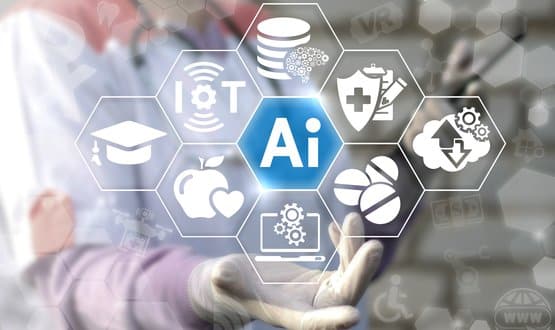Twenty developers are “confident” their artificial intelligence technology will be ready to implement in the NHS within a year, a report by NHSX has revealed.
The report, Artificial Intelligence: How to get it right, also reveals a further 70 developers have predicted their products will be ready to use within five years.
The document is the first foundational policy released by NHSX on the £250m National AI Lab, which was announced in August.
It outlines how the unit will develop a governance framework, use data and encourage the spread of “good” innovation within healthcare.
Referencing the Code of Conduct for Data-Driven Health and Care Technology, NHSX vowed to deliver a “how to” guide for developers producing AI algorithms, including the ethical examination of data.
“The intention is to make it very clear to developers not only what is expected of them in order to develop AI for use in health and care, but also how they might go about doing it,” the report said.
“This is because ethical and behavioural principles are necessary but not sufficient to ensure the design and practical implementation of responsible AI. The ultimate aim is to build transparency and trust.”
Ethical implications of AI will also be considered in the development of governance frameworks to cover both clinicians using the technology and the impact on patients and the wider population.
“Ultimately, this means we can tackle any potential harms proactively rather than reactively,” the report said.
Tara Donnelly, chief digital officer of NHSX, said: “Artificial Intelligence has already shown it has the potential to not only improve but save lives across the health and care system.
“From processing scan results to automating language, this is an exciting era for technology in healthcare and the introduction of our new NHS AI Lab will help revolutionise the UKs ability to take advantage of this technology, benefiting patients and clinical staff alike.”
Screening and diagnostics are two areas where developers and local hospitals are already testing AI algorithms.
The report also highlights projects in image recognition in cancer screening and algorithmic technology that can help NHS trusts.
According to Royal College of Radiologists, the NHS is performing around two million breast screens per year in the UK, with each test result reviewed by two clinicians.
But AI has already demonstrated its potential to ease the burden on staff and free them up for other work, according to the report.
A consortium in the East Midlands is currently working to use artificial intelligence and machine learning to improve breast cancer screening as part of the NHS Test Beds programme.
A Google DeepMind AI system, being trialled at Moorfields Eye Hospital, found it made the correct referral decision for more than 50 eye diseases with 94% accuracy, matching the world’s best eye experts.
The secretary of state for health and social care, Matt Hancock, added: “We are on the cusp of an exciting future for our NHS, with artificial intelligence at its heart.
“I am determined to bring our NHS into the twenty first century so we can continue providing the best healthcare in the world – this report shows exactly how we are spearheading world-leading technology that will transform the lives of patients and staff through new treatments, diagnostic techniques and care.”
The National AI Lab aims to improve cancer screening and speed up results, use DNA data to identify patients most at-risk of diseases, upskill the workforce to use artificial intelligence (AI) systems and automate routine administration tasks to free up clinicians.
Speaking at NHS Expo in September, Hancock said the lab will be used to “train” algorithms and develop “ethical” frameworks and was part of a “major transformation” to improve digital health and patient experience.


7 November 2019 @ 12:51
Given the changes coming with the new device regulations in May and the lack of Notified Bodies across Europe I doubt that these medical devices will be have completed their clinical investigations and be CE marked and on the market in a year!
31 October 2019 @ 16:41
The two examples of successful “AI” in this article – breast cancer screening mammograms and the Moorfields eye disease – are both pattern recognition, where one might expect successful machine learning.
When it comes to symptom checkers and decision making, should any success be anticipated?
Especially as the databases used lack any quality control – as stated in NHS X’s video.
30 October 2019 @ 13:12
Hancock was never at the NHS Expo, he never showed as he was required in parliament.